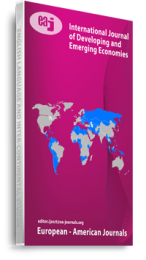The present study is an attempt to analyze the performance of Sudanese Economy based on Keynesian Multiplier, and to identify the effect of this Multiplier and the procedures and actions adopted by Sudanese Government to increase the value of the Multiplier. The study utilized the descriptive method, Econometrics and EViews software. The data of the study is the time series (1977-2016) collected from Central Bureau of Statistics, Sudan. Stationarity of the data examined depending on Augmented Dickey-Fuller (ADF) and Phillips Perron (PP) unit roots tests, as well as Johansen test to identify variables co-integration. It found that variables are co-integrated in the long run. The multiplier value calculated for each year, its mean value (0.52). Using Ordinary Least Squares (OLS) method, R2 for Goss Domestic Product (GDP) equation (0.98) indicates that dependent variable affected by (98%) of independent variables. The variables of lag consumption, lag investment and lag government expenditure are significant at the standard error of 10%. However, the variable of lag trade payment deficit has no significant impact, may be because of recession and fluctuation in the pattern of international demand. All parameters are consistent with the economic theory, but the small size of parameters indicates to the insignificant impact of independent variables on GDP decisions. The study findings show that average value of the multiplier is (0.52190). It indicates that the more the aggregate demand increased by 100 Unit, the more the GDP increased by 52 Unit. It is a minor impact on Sudanese economy. This result is consistent with Hasan, Kawaz and Salah studies which conclude that the multiplier does not work in developing countries, however; its impact is transmitted to foreign countries through importation. It is confirmed by high MPT. The study concludes that the Keynesian multiplier (K) has an insignificant impact on Sudanese economy. Moreover, the feature of multiplier as a not-working concept in developing countries is entirety applicable on Sudanese economy. The Sudanese economy characterized by immaturity and does not comply with the operative economic theory as a result of instability, lack of free competition conditions, insignificant production mechanism and also, it cannot be controlled by supply and demand. However, Sudan can improve its production increase, economic activity level and total economic balance through intervention in economics and creating new exports to increase its investment spending. The study recommends establishing and developing an industrial base to encourage exports and constrain imports. In addition, encouraging investment and contribution to the GDP and elevating the efficiency of production mechanism. And finally, finding the appropriate mechanisms for the application of the principle of competitiveness and developing and activating the helpful plans to reduce trade payment deficit.
Keywords: Keynesian Multiplier, Sudanese Economy Performance

